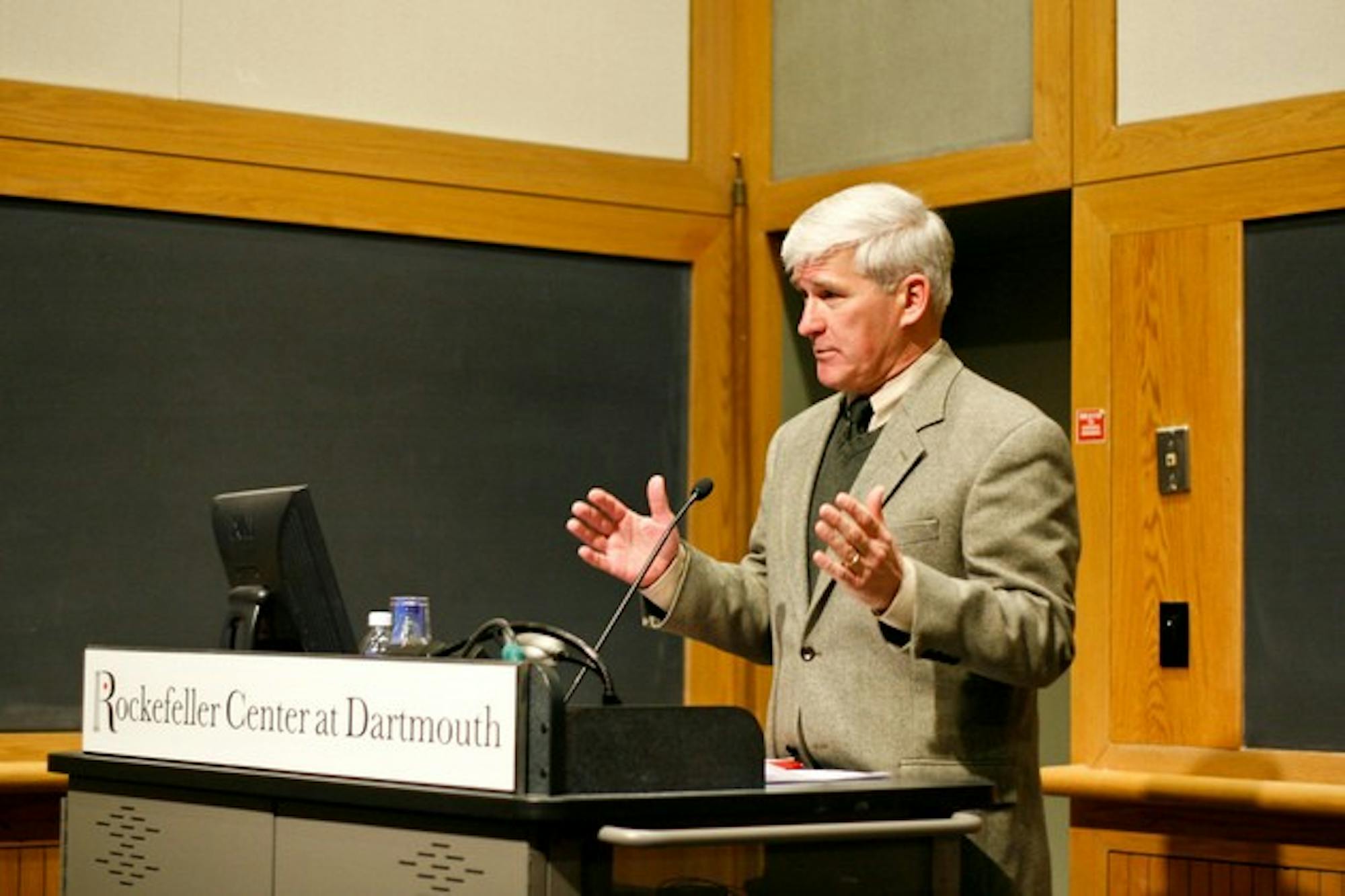"We have reached a true turning point in U.S. history and in global history," Bacevich said, referring to the current economic crisis. "Neither the greed of Wall Street, nor the recklessness of Main Street can explain the problem. We must put our house in order -- it is imperative. There must be substantive change."
For the lecture, "Change and Continuity in U.S. Foreign Policy," Bacevich drew from his new book, "The Limits of Power: The End of American Exceptionalism." In the book, Bacevich, a retired lieutenant colonel in the U.S. Army, disputes the "mythic narrative" that America has "grudgingly" accepted world power to promote freedom, arguing instead that the United States willingly sought hegemony.
Expansionism has guided U.S. foreign policy throughout the country's history, not the oft-described conflict between liberal internationalism and conservative isolationism, Bacevich said. He said the United States has a long history of expansion, from domestic territory gains in the 19th century, to formal empire, as with the Philippines and what he saw as a contemporary desire to acquire an informal empire in the Middle East.
After Sept. 11, he said, then-President George W. Bush's administration had hoped to enact a "fundamental political and cultural transformation of the Islamic world" by winning the Iraq war, believing success in Iraq would change the face of the Middle East. The war has not brought the region under American control, he said, but rather has created instability and anti-Americanism.
"Can anyone think that this strategy of changing the way [the Islamic world] live is plausible or affordable?" he said. "The Islamic world is not nearly as malleable as we once thought. American military power is not as great as we once fancied."
After the Cold War ended in the 1990s, the United States had the notion that "history had ended, and we had declared ourselves the winner," he said.
Yet the commonly held belief that America in the 1990s was an unassailable superpower was merely "hogwash -- a great and pernicious illusion," he said.
A fall in savings rates and increases in the government's deficit and energy dependence, he said, are indications of the harsher reality that America has increasingly become a "debtor nation."
"Americans resorted to borrowing to support a life based on the product of unfettered consumption," he said. "Americans refused to live within their means."
Bacevich offered several solutions during the lecture, including the withdrawal of U.S. forces from Western Europe and NATO troops from Afghanistan, where he said cohesion has been undermined by policy differences among member nations. The situation in Afghanistan should be labeled an "international criminal conspiracy," he said, and advocated forming a multinational police campaign to suppress terrorist activity. The United States should also work within the traditional Afghan power structure to offer tribal leaders incentives to keep terrorists out of the territory under their control, he said.
Ultimately, the United States must stop claiming that moral issues are at the forefront of its foreign policy decisions, Bacevich said.
"All nations act in pursuit of perceived self-interest," he said.
The United States should be willing, however, to intervene in humanitarian crises where fundamental moral values are at stake, though, such as the 1994 genocide in Rwanda, Bacevich said.
"There are forms of barbarism so dark that we have to react or we will live in a world too dark to think about," Bacevich said.
America should also address problems that satisfy both its self-interest and the interests of other countries, he said, including nuclear proliferation and climate change.
While Bacevich said he is pessimistic that President Barack Obama's team will think creatively about global issues, he added that it is too early to predict the new president's foreign policy.
"We must wish our captain well as he guards the helm," he said.




